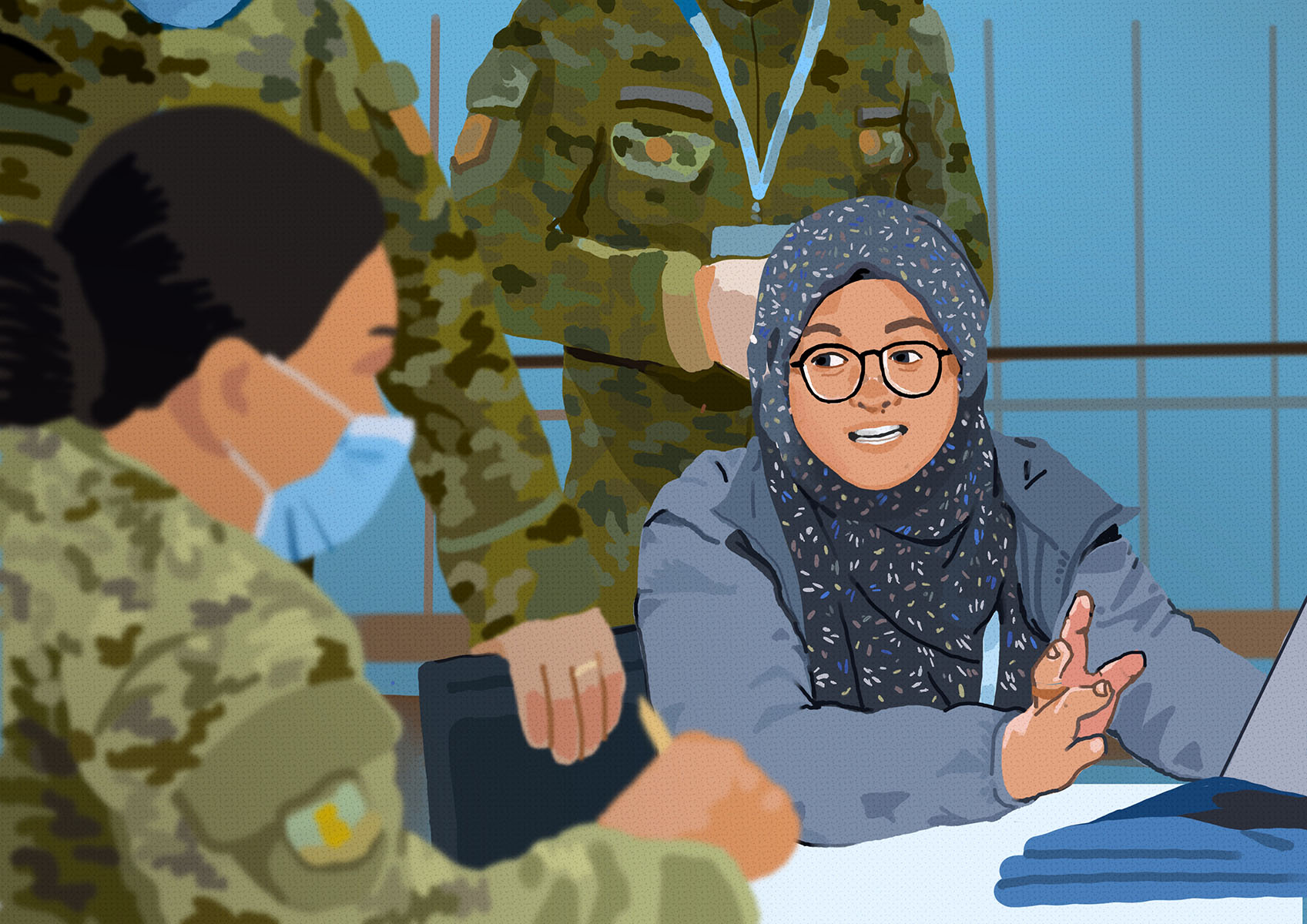In the words of Sittie Janine M. Gamao: “To overcome my own fears, I think of myself not as babae lang (just a woman) or bata pa (too young) but as a peace officer doing her work.”
Date:
Interview by Carol Dawonlay vda Bello

Sittie Janine M. Gamao, 32, is a Peace Programme Officer V, Ministry of Public Order and Safety in Bangsamoro Autonomous Region in Muslim Mindanao, the Philippines. Gamao helps to resettle in mainstream society former fighters of the Moro Islamic Liberation Front and the violent extremist groups Maute/ISIS and Abu Sayyaf. She also helps widows of slain fighters.
As a younger woman compared to others doing peacebuilding work, it scares me sometimes knowing there is always that threat to our security and safety. I sometimes have fearful thoughts of being ambushed or kidnapped when doing field work. Our peacebuilding work is not typical because we are not formally from the security sector. I am not trained to be armed or even defend myself.
To overcome my own fears, I think of myself not as babae lang (just a woman) or bata pa (too young) but as a peace officer doing her work. I try to muster more courage especially when the people I am meeting with are mostly men who are also mostly older than me.
To build trust and confidence with conflict-affected communities, I strive to reflect sincerity in my words and actions, show respect for the people who are most affected by poverty and violence. In this kind of work, there are no shortcuts. You have to mentally prepare and know the realities of the communities you visit. You have to spend time to listen and really help find ways to address their concerns.
I joined the Gender-Based Analysis Workshop organized by UN Women from April 5 to 7, 2022 in Davao City, where I facilitated the small group workshop on peace and security. In that workshop, I was discussing directly with uniformed personnel from the Armed Forces of the Philippines and Philippine National Police. I saw how diligent they are in their gender budget utilization. I learned about how they are able to train personnel within their own organizations. I think they also learned something from me even if I am the younger member of the group. They learned about the situations on the ground, and about the peacebuilding efforts of the Bangsamoro government for the vulnerable sectors. I think they appreciated my knowledge on the gender dimension of conflict.
Since 2016, I have gone through workshops including those by UN Women on young women’s leadership training, learning sessions on transitional justice and reconciliation, and conversations with diaspora communities all over the country. I met the most empowered women who inspire me up to now.
I earned an award and have been invited to other countries to talk about peace but my real happiness is doing peace work on the ground, sharing the realities of women in conflict, and doing something about it. I am glad that UN Women is still here to journey with younger women like myself who find joy in making peace real in the lives of the most marginalized women and their families, including the former combatants.”